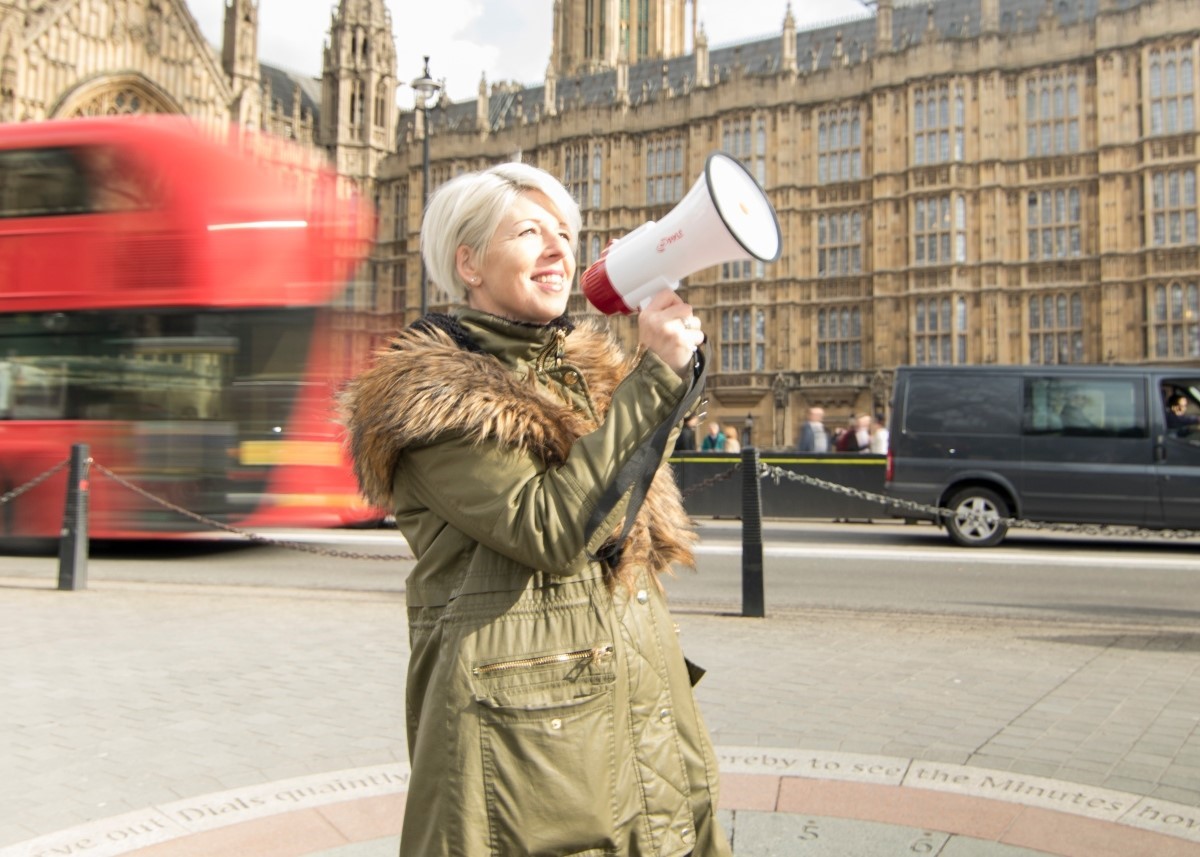As 2021 comes to a close, we wanted to highlight some of the key issues we’ve been campaigning on this year, as well as some big wins we’ve secured together.
As 2021 comes to a close, we wanted to highlight some of the key issues we’ve been campaigning on this year, as well as some big wins we’ve secured together.

A long-awaited victory for secondary breast cancer
After a 15 year fight, we successfully secured a secondary breast cancer audit on the English NHS in May. Then, in the autumn, the Welsh Government announced that the NHS in Wales would also be participating.
This breakthrough means that, for the first time, we will no longer need to estimate the number of people living with this disease - and we hope that the insight gained will lead to patients living with secondary being better supported, with services better planned to meet their needs.
We are now working with the relevant bodies to shape this audit so it works as effectively as possible and will continue to take our campaign to Scotland and Northern Ireland to ensure secondary breast cancer patients and their care are also audited.
Helping health professionals spot the signs of secondary breast cancer
In our 2019 report, which looked at the experiences of over 2,000 people living with secondary breast cancer, we found that almost a quarter had three or more visits to the doctor before getting their secondary breast cancer diagnosis. We therefore identified that GPs needed more support to spot the signs and symptoms of secondary breast cancer.
To help achieve this, we worked with GatewayC, a free online education platform, to develop a new course to help GPs and other primary care professionals recognise breast cancer recurrence and improve their confidence in decision-making regarding referral back to breast cancer services.
We are now working with GatewayC to promote the course as widely as possible.
Securing changes to the cancer patient experience survey
Before 2021, the cancer patient experience survey (CPES) didn’t identify whether or not a patient had secondary breast cancer. This made it challenging for healthcare providers to improve care and treatment for people living with the disease as they didn’t fully understand their experiences.
So, we’re delighted to have successfully worked with NHS England this year to make sure the National Cancer Patient Experience Survey (CPES) can better capture the experiences of people living with the disease.
Our work with NHS England will ensure that in future, the CPES will:
- Be clear if someone answering the survey has secondary breast cancer
- Ask whether they were made aware of the signs and symptoms of recurrence when finishing their treatment
These changes will allow us to understand much more about the care and support secondary breast cancer patients receive, including support from a clinical nurse specialist, and give us insight into how we can better support people to get an early diagnosis.
The new version of CPES will start being sent out to patients this month and results are expected to be published in Spring 2022.
Securing the future of the breast cancer workforce
We supported Jeremy Hunt’s amendment to the UK Government’s Health and Care Bill, which sought to strengthen workforce planning. By requiring the Health Secretary to publish independent assessments of current and future workforce numbers every two years, we believe decision makers will be better equipped to ensure that the resources are in place to meet people’s needs.
The amendment, which was supported by a coalition of more than 50 health organisations including Cancer Research UK, Macmillan and The Health Foundation and members from all political parties, was defeated by 280 votes to 219 in the House of Commons. The Bill will now move on to the House of Lords, where we expect further amendments to strengthen workforce planning to be tabled.
Campaigning for access to Trodelvy
This year we’ve been campaigning to ensure all eligible patients can access Trodelvy (also known as sacituzumab govitecan), an exciting new drug that could give women living with incurable triple negative secondary breast cancer (TNSBC) the hope of more time.
Key activity has included:
- A 220,000 signature petition, the biggest in Breast Cancer Now history
- An Early Day Motion, signed by over 30 MPs
- Major contributions to the Health Select Committee’s inquiry into cancer services, including appearances from patient advocate Philippa Hetherington and Breast Cancer Now Chief Executive, Delyth Morgan
You can read more about our work on Trodelvy in detail in our latest blog.
Thank you
We’d like to say a massive thank you to everybody who’s supported our campaigns this year – whether you’ve emailed your MP, signed a petition, or shared one of our campaigns with your friends and family, you’ve helped us to make a real difference for people affected by breast cancer.
To keep up-to-date with all our work and find out how you can get involved, sign up to receive email updates.